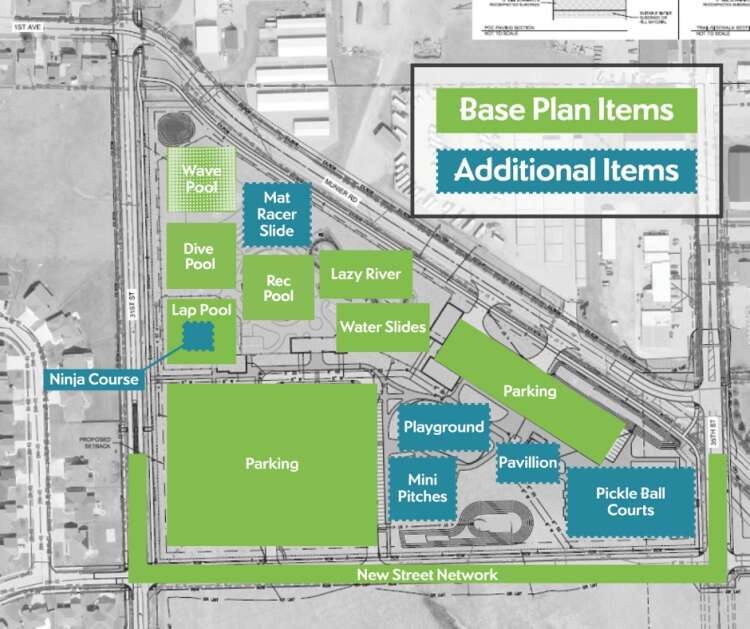The Gazette uses Instaread to provide audio versions of its articles. Some words might not be spoken correctly.
MARION The proposed aquatics center project in the city of Marion is receiving a lot of interest and attention. Officials from the city are now questioning if there is enough time.
The results of a community survey that was carried out last month to gauge respondents’ support for the project at several scales and price points were presented to city council members on Tuesday. Every home received a mailer, and 3,240 answers were received by the city.
According to the survey’s findings, most citizens are in favor of an attempt to replace the current city pool—but only if the city can lower the asking price from the $42 million minimum that was specified.
After hearing the results, Ward 4 Council member Sara Mentzer expressed concern about the remaining time on issue. The vote is scheduled for November, but as of mid-August, we are still debating whether or not it will pass.
During Marion’s most recent ImagiNEXT community visioning process, city officials determined that replacing the current pool was a top priority.
Willowood Park’s current pool was constructed in 1987 and is no longer functional. Nearly every year, the city must make expensive repairs, and the next significant mechanical failure will probably necessitate a permanent closure.
With the development of the new aquatics complex between 31st and 34th streets south of Munier Road, officials expect to remedy that issue; however, the project is dependent on the outcome of a bond referendum approved by voters.
The research firm Community Perceptions examined the results of the July survey, which was designed to gauge possible support for such a vote.
Two base options—one with and one without a wave pool—as well as a number of “alternatives” or extra amenities were offered to homeowners throughout the survey.
Both possibilities featured a lap pool, dive pool, lazy river, and associated parking and street infrastructure, as well as a recreational pool for younger kids and their guardians. Option two cost $46 million because of the wave pool, while option one cost $42.4 million.
With 54% of respondents indicating they would support the initiative, option one garnered the most support. Option two’s approval rate fell to 45%. Neither reached the 60 percent approval threshold required by Iowa law for a bond referendum to be approved.
However, if the price drops from the polled totals, the statistics indicate that citizens might still pass a bond referendum, Scott Girard, project manager for Community Perceptions, informed council members.
According to Girard, in general, project support rises as costs and tax impacts decline. A $42 million referendum doesn’t get you where you want to go, even when more than half of your community indicates they would be open to anything rather than nothing.
As a result, city employees advise council members to proceed with the basic project without the wave pool. According to updated cost estimates, doing so would cost about $40.9 million.
Staff are suggesting using additional funding sources to pay for some planning expenses and associated road improvements in order to further reduce the referendum. An additional $4 million will come from the local options sales tax (LOST) fund, and about $1 million will come from airport bonds.
That would reduce the total bond referendum to $35.9 million as suggested.
However, a number of council members questioned whether there is enough time to inform voters about the bond and whether that drop is sufficient to secure the amount of affirmative votes required to pass the bond on the ballot on November 4.
Other members raised concerns about the project’s possible effects on the city’s self-imposed debt limit as well as the use of LOST funds for an amenity-focused project rather than necessary civic improvements.
According to Ward 1 Council member Gage Miskimen, “it just feels tight all around financially and with the timeline at this point.” The city of Marion has all of its funds from its citizens, and the findings of our survey do not clearly indicate that this project is currently required.
At the council’s September 2 work session, draft bond language will be presented. On September 4, a resolution regarding whether and to what extent to advance the matter to the November 4 ballot will be discussed.
Prior to the work session, more details on the effects on debt capacity will be obtained, according to City Manager Ryan Waller. The effects of a lesser $35.9 million referendum on property taxes will also be reviewed at that time.
Please send an email to [email protected].






